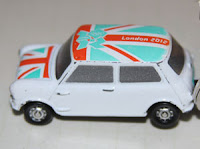 |
| It was a beautiful afternoon in Nice. |
I'm currently renting an apartment in
the delightfully charming Vieux Nice (Old Nice), which dates back
several hundred years. I found this little gem on www.homeaway.com
and described the process of renting it in a previous post.
If you're interested in coming to Nice
yourself, you are probably wondering how to get to your destination.
It's actually very easy. If you're coming from another area of
Europe, you can arrive by train at the station Nice Ville. From
there, make a left when exiting the station and walk down a block to the tram, which makes many stops around town. Several buses run from the front of the station
throughout the city. You can also pick up a cab in front of the
station.
If you fly into Nice's airport on the
edge of town, you can take a bus to several towns in the area as well
as the buses that go to the train station and the bus station with
several stops along the way. The cost is a mere 4€, and you can use
the ticket for the rest of the day on the Nice tram and any Lignes d'Azur bus. If you don't want to deal with the bus, taxis cost
35-50€. Or if you're one of the many jetsetters who frequent this
area, and you're heading to Monaco, you can hire a private
helicopter.
Speaking of the bus, it's clean and
reliable, making it the most convenient way to get around Nice and
the surrounding villages. It's also remarkably cheap at only 1€ per
ride, 4€ for a day pass or 15€ for a weekly pass. These passes are also valid on the Nice tram. Buy bus tickets
from the driver, and buy tram tickets from the machines found at
every tram stop.
Monthly passes are also available for
40€ at a Lignes d'Azure office if you are going to be in the area
for more than a few weeks. For these passes, you have to bring a
passport and a passport-sized photo as well as a photocopy of the
passport, which you can make at the office. Why you need these items
is a mystery to me because the clerk scans your passport, throws away
your copy and returns the photo to you. I really wanted to ask the
clerk why I had to go all the way back to my apartment for the extra
photo, but I didn't want to
make her mad at me, so I just kept saying merci to avoid engaging her
in a conversation that could lead to a question that I was unable or unwilling to
answer.
Now that I have my bus pass, I'm
ready to venture out int the Sunny South. So why is a region that
boasts 300 days of sun each year forecasting rain for the next six
days?



